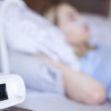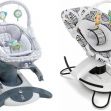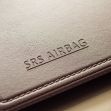The Food and Drug Administration has classified the recall of Philips ventilators and breathing devices as Class 1, the most serious rank for a medical device recall.
According to the FDA, there have been over 1200 complaints reported regarding the company’s breathing devices or ventilators and more than 100 injuries related to the devices. The recall has been issued for Continuous and Non-Continuous ventilators that are used by individuals with sleep disorders like sleep apnea as well as other therapeutic needs as required by the patient. The products recalled are used in a variety of settings including residential settings, hospitals, and care facilities including nursing homes.
On June 14, the Dutch medical equipment company Philips issued a recall on some of its breathing devices and ventilators because of a defective foam compartment. The FDA explained that the polyester-based polyurethane sound abatement foam piece had the potential to “break down and potentially enter the device’s air pathway. If this occurs, black debris from the foam or certain chemicals released into the device’s air pathway may be inhaled or swallowed by the person using the device.”
The FDA warned that issues regarding inhaling the toxin could lead to a variety of symptoms including vomiting, headaches, asthma, and irritation in the respiratory system, eyes and skin. The toxin is also described as having a carcinogenic effect.
According to the FDA, the recall covers the following products:
- Continuous Ventilator, Minimum Ventilatory Support, Facility Use: Philips Respironics E30 with Humidifier
- Continuous Ventilator, Non-life Supporting devices: DreamStation ASV, DreamStation ST, AVAPS, SystemOne ASV4, C-Series ASV, C-Series S/T and AVAPS, OmniLab Advanced+, and
- Noncontinuous Ventilators: SystemOne (Q-Series), DreamStation, DreamStation Go, Dorma 400, Dorma 500, and REMstar SE Auto)
Philips has stated that the product codes for impacted devices are BZD and MNS. Also, the devices were manufactured between April 11, 2007, and April 22, 2021, and were distributed between July 21, 2009, and April 22, 2021.
More information regarding who should discontinue the use of the products and what steps to take if your product is listed can be found on the FDA’s Medical Device Recall website.
What Is a Class 1 Medical Device Recall?
When a medical device recall is issued, the FDA may assign it a classification if necessary. There are three recall classifications (I, II, or III). A Class I recall is used to describe recalls on products that, if continued to be used, have a reasonable chance of causing serious injury or death.






